What's a verb?
In this guide, we'll learn about what a verb is in both English and French.
Generally speaking, a verb is a word that describes some sort of actions. In English, we often see them with the word “to” in front of them:
to try
to pay
to make
to be
to sing
to choose
to decide
to work
to run
to play
to buy
to jump
What are verbs in French?
In French, verbs can end in either the letters “er”, “ir” or “re”.
essayer – to try
faire – to make
partir – to leave
manger – to eat
boire – to drink
finir – to finish
acheter – to buy
vendre – to sell
choisir – to choose
lire – to read
Optional “to”
In English, the word “to” sometimes appears in front of a verb, but sometimes, you don’t need it:
I would like to try the wine
Can I try the wine?
You can see how, in the first sentence, we have the verb “to try”, whereas in the second sentence, we simply use “try”. In French, on the other hand, you always just use the verb, which will end in either “er”, “ir” or “re”.
I would like to try the wine
Je voudrais essayer le vin
Can I try the wine?
Puis-je essayer le vin?
Let's practise
Let’s have a go at building some sentences with some verbs in French. Here is some vocabulary we might need:
PHRASES
I would like – je voudrais
can I – puis-je
do you want – voulez-vous
I’m going – je vais
VERBS
(to) go – aller
(to) make / do – faire
(to) pay – payer
(to) try – essayer
(to) hire – louer
(to) leave – partir
EXTRA VOCAB
tomorrow – demain
a reservation – une réservation
the bill – l’addition
that – ça
please – s’il vous plait
the wine – le vin
a car – une voiture
now – maintenant
- I’m going to hire a car
- I’m going to leave now
- I would like to make a reservation
- Can I leave now?
- I would like to pay the bill
- I would like to try that, please
- Do you want to try the wine?
- Do you want to leave?
- Can I pay the bill, please?
- Can I try the wine?
- Do you want to make a reservation?
- Can I make a reservation?
- I’m going to pay for the wine
- I would like to go tomorrow
- I’m going to pay the bill now
- I’m going to try the wine
- Can I hire a car, please?
- Do you want to pay?
- I would like to try the wine
- I’m going to do that tomorrow
ANSWERS
- Je vais louer une voiture
- Je vais partir maintenant
- Je voudrais faire une réservation
- Puis-je partir maintenant?
- Je voudrais payer l’addition
- Je voudrais essayer ça, s’il vous plaît
- Voulez-vous essayer le vin?
- Voulez-vous partir?
- Puis-je payer l’addition, s’il vous plaît?
- Puis-je essayer le vin?
- Voulez-vous faire une réservation?
- Puis-je faire une réservation?
- Je vais payer le vin
- Je voudrais aller demain
- Je vais payer l’addition maintenant
- Je vais essayer le vin
- Puis-je louer une voiture, s’il vous plaît?
- Voulez-vous payer?
- Je voudrais essayer le vin
- Je vais faire ça demain
In context
It’s always good to look at rules in context, because it helps to solidify them in your mind. So, let’s read through the lyrics of the Florent Pagny song, “Savoir aimer”, which means “Knowing how to love”. We’ll look at all the verbs in the song, and go through what they mean in English.
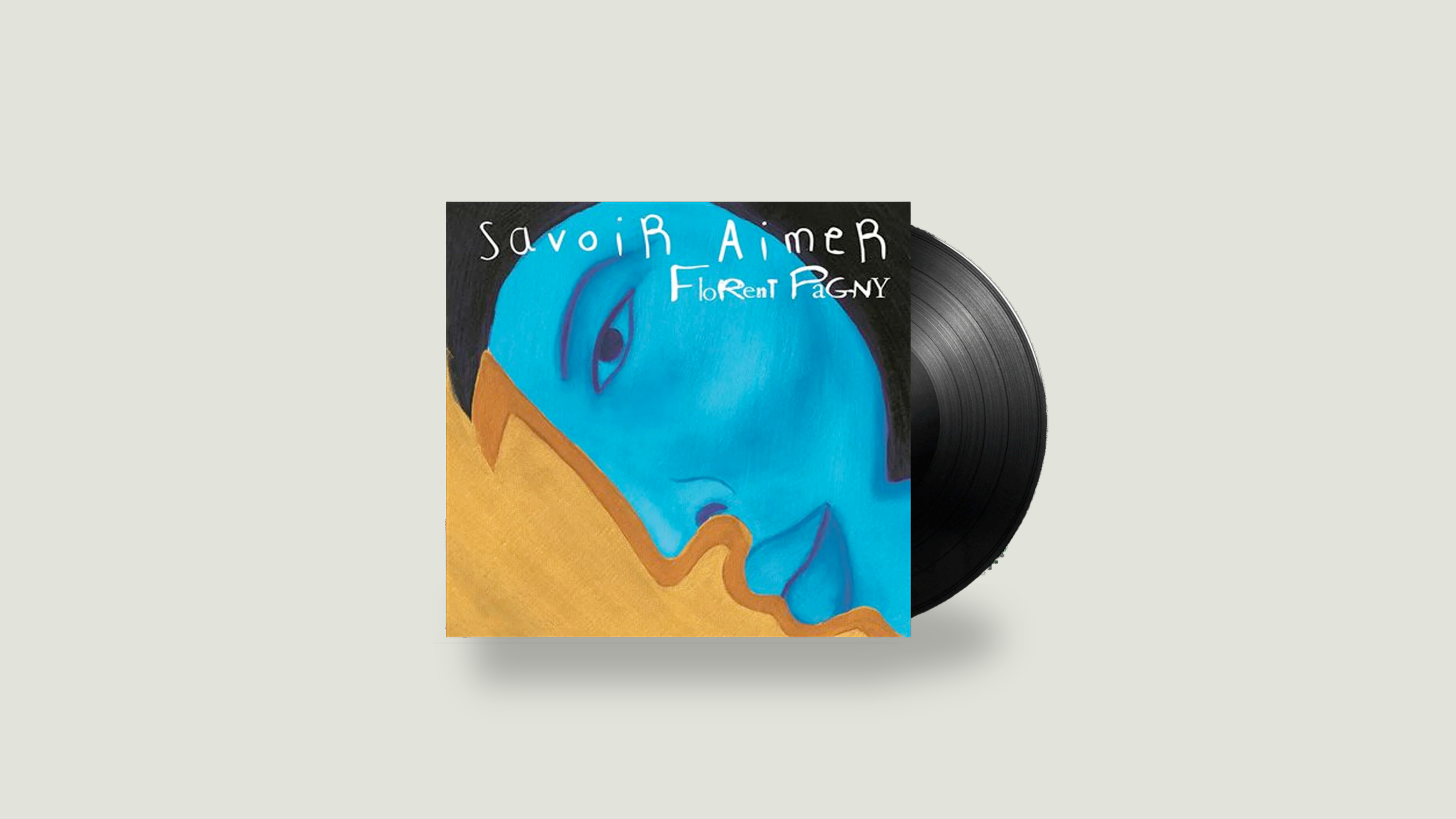
SAVOIR AIMER
Savoir sourire
À une inconnue qui passe
N’en garder aucune trace
Sinon celle du plaisir
Savoir aimer
Sans rien attendre en retour
Ni égard ni grand amour
Pas même l’espoir d’être aimé
Mais savoir donner
Donner sans reprendre
Ne rien faire qu’apprendre
Apprendre à aimer
Aimer sans attendre
Aimer à tout prendre
Apprendre à sourire
Rien que pour le geste
Sans vouloir le reste
Et apprendre à vivre
Et s’en aller
Savoir attendre
Goûter à ce plein bonheur
Qu’on vous donne comme par erreur
Tant on ne l’attendait plus
Savoir y croire
Pour tromper la peur du vide
Ancrée comme autant de rides
Qui ternissent les miroirs
Savoir souffrir
En silence sans murmure
Ni défense ni armure
Souffrir à vouloir mourir
Et se relever
Comme on renaît de ses cendres
Avec tant d’amour à revendre
Qu’on tire un trait sur le passé
Apprendre à rêver
À rêver pour deux
Rien qu’en fermant les yeux
Et savoir donner
Donner sans rature
Ni demi-mesure
Apprendre à rester
Vouloir jusqu’au bout
Rester malgré tout
Apprendre à aimer
Et s’en aller
savoir — (to) know
sourire — (to) smile
garder — (to) keep
aimer — (to) love
attendre — (to) wait
être — (to) be
donner — (to) give
reprendre — (to) take back
faire — (to) do / (to) make
apprendre — (to) learn
prendre — (to) take
vouloir — (to) want
vivre — (to) live
aller — (to) go
goûter — (to) taste
croire — (to) believe
tromper — (to) deceive
souffrir — (to) suffer
mourir — (to) die
relever — (to) put up
revendre — (to) to resell
rester — (to) stay
Get three courses in one bundle, and save money
-
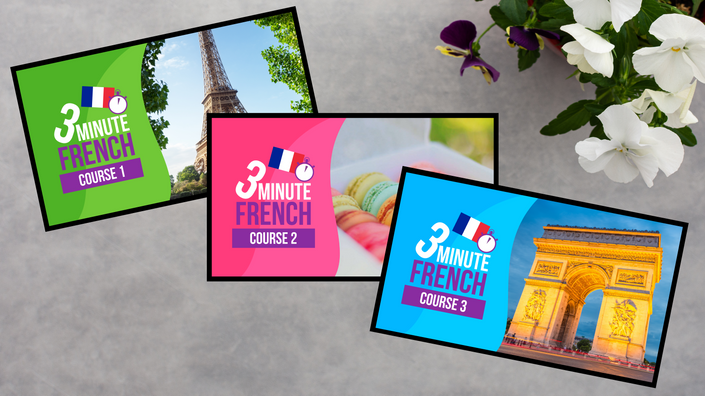
Courses 1, 2 & 3
Get this bundle -
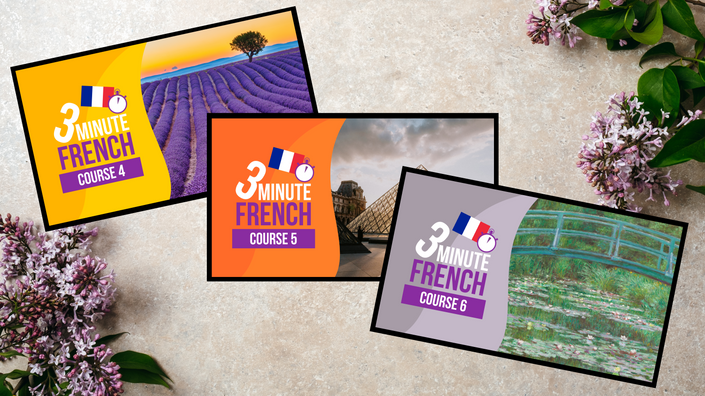
Courses 4, 5 & 6
Get this bundle -

Courses 7, 8 & 9
Get this bundle
Course 2, Building Structures and grammar courses
-

Course 2
Get this course -
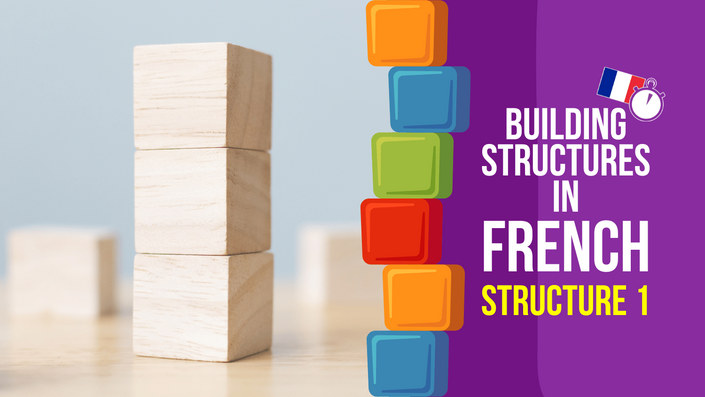
Building Structures
Get this course -

Quick Guide
Get this course
All my French courses
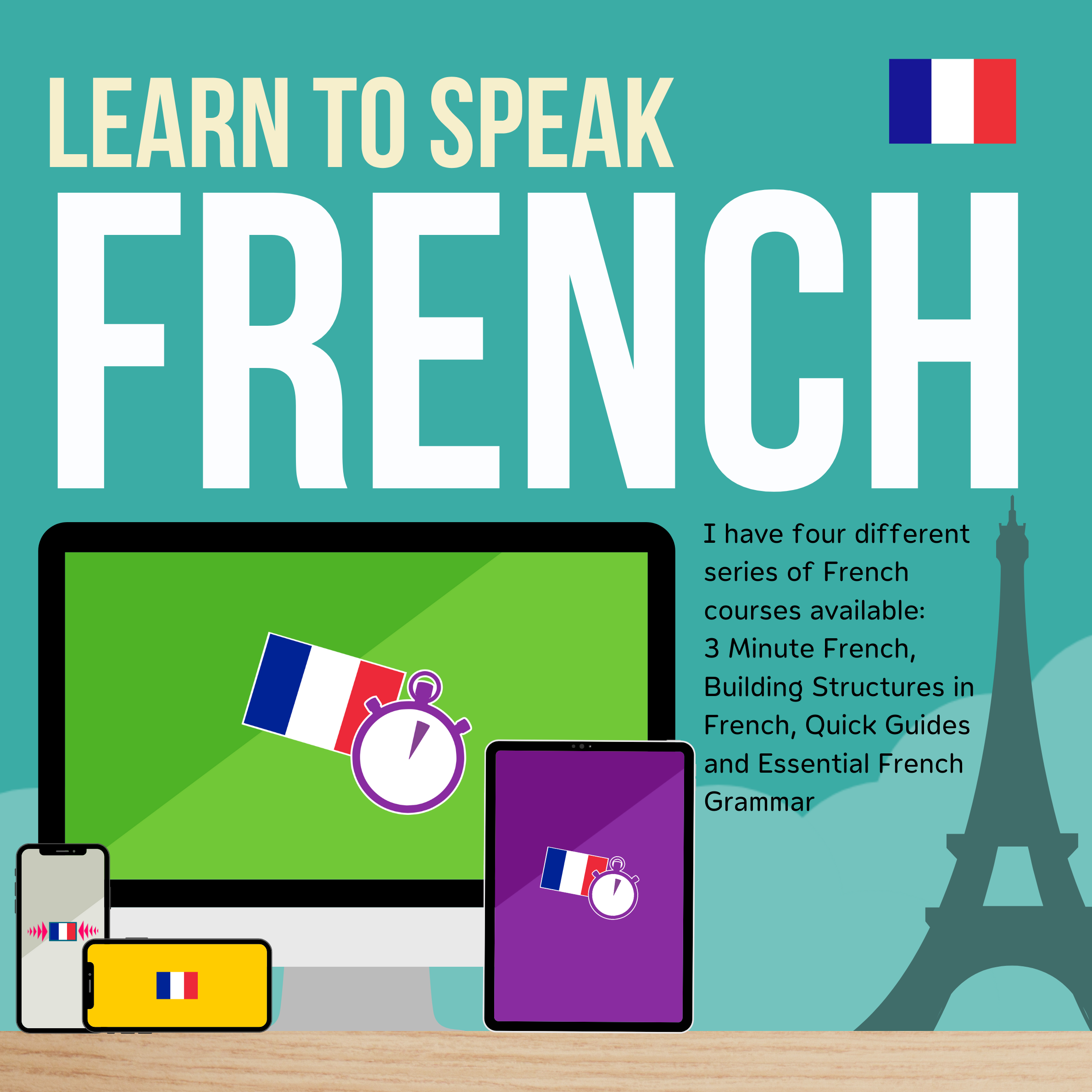
Building Structures in French
Quick Guides
French grammar
Essential French grammar - Future | Conditional | Imperfect
All my Spanish courses
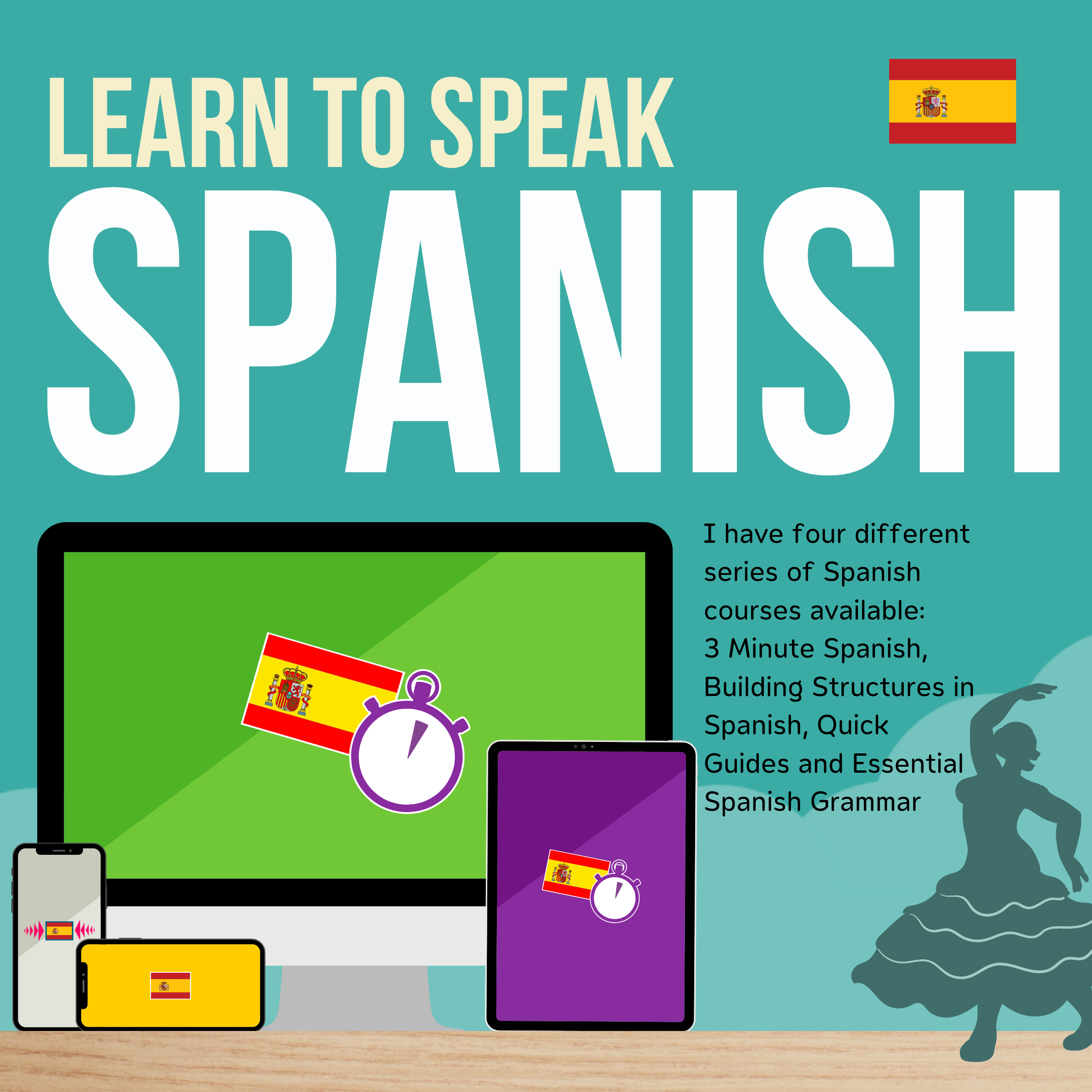
Building Structures in Spanish
Quick Guides
Spanish grammar
Essential French grammar - Future | Conditional | Imperfect
All my German courses

Building Structures in German
Quick Guides
German grammar
Essential French grammar - Future | Conditional | Imperfect
All my Italian courses
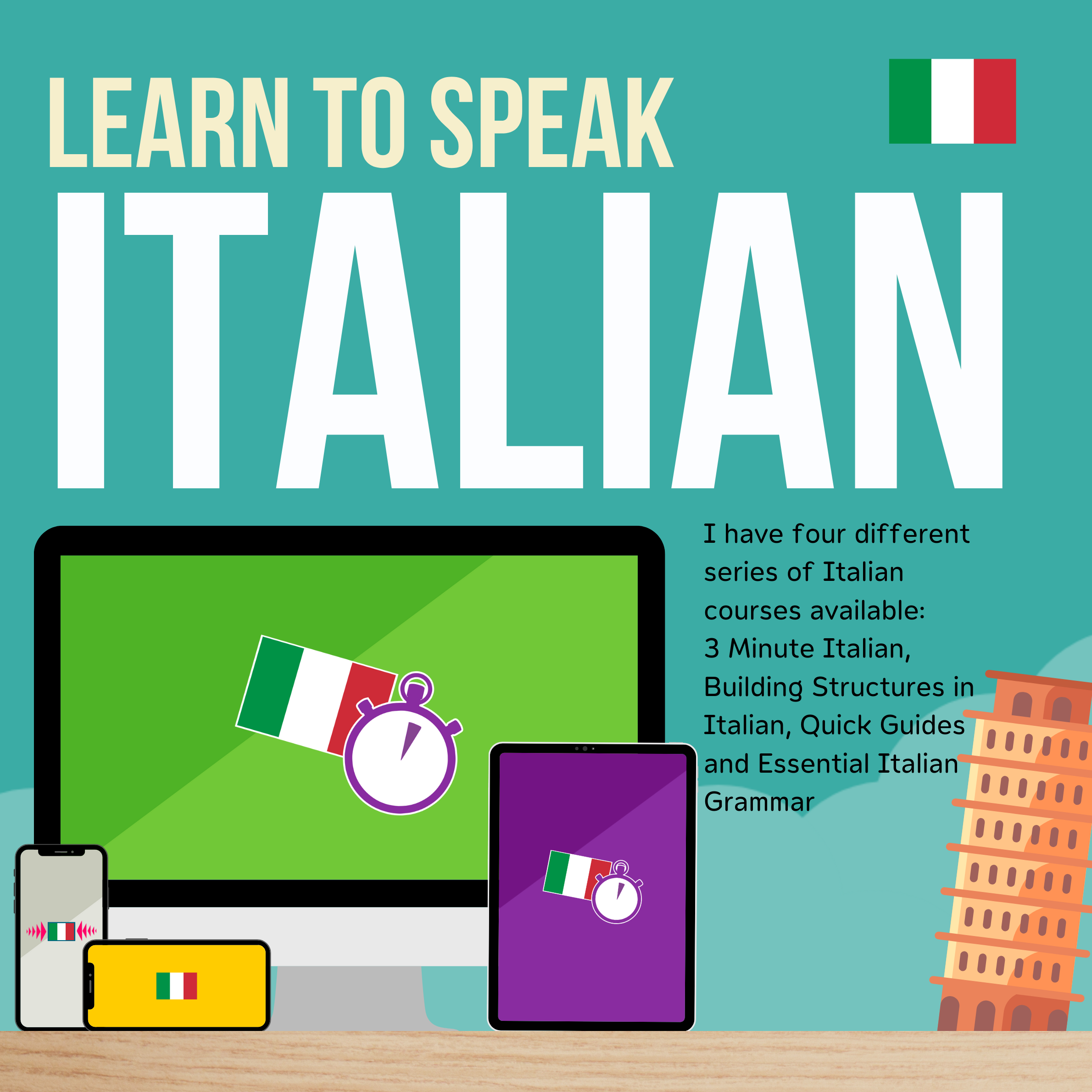
Building Structures in Italian
Quick Guides
Italian grammar
Essential French grammar - Future | Conditional | Imperfect
All my Portuguese courses

Building Structures in Portuguese
Quick Guides
Portuguese grammar
Essential French grammar - Future | Conditional | Imperfect
